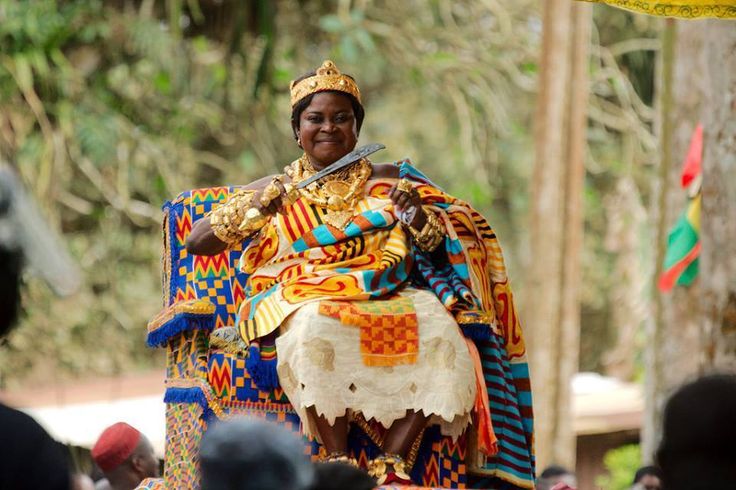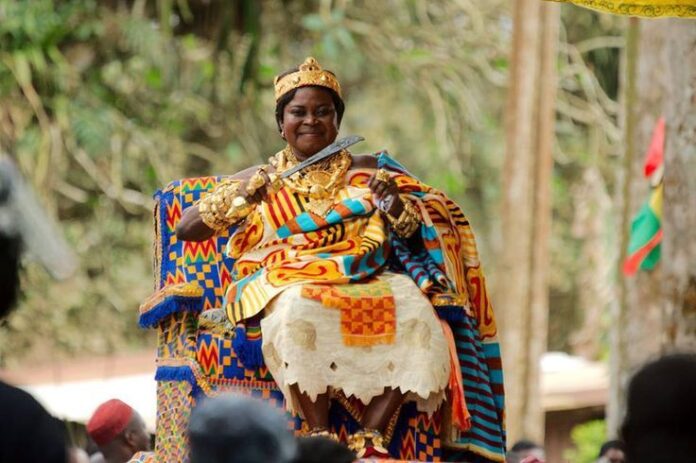Which people celebrate odwira festival? The Akuapem Odwira Festival is celebrated by the people of Akropong-Akuapim, Aburi, Larteh, Kitase, and Mamfi in the Eastern Region. This festival is celebrated in most Akwapim towns during the months of September and October.
Odwira, as a festival of the Akan people, is meant to be a celebration of communal identity. The festival originated centuries ago, as a time for people to assemble and celebrate after the yam harvest, this led it to be inaccurately called the Yam Festival by the uninformed.
The first ruler of Ashanti, Asantehene Osei Tutu 1, is believed to have initiated the Odwira festival with the purpose: of reinforcing the loyalty of the subjugated chiefs.
The Akuapem Odwira festival was instituted by the 19th Omanhene of Akropong. Nana Addo Dankwa l (1811-1835) and was first celebrated in October 1826, in commemoration of the capture of the objects for the celebration of Odwira by Akuapem forces from the hitherto invincible Ashanti army in the historic victory over the Ashanti during the battle of Katamansu, near Dodowa, earlier in that year.
Akropong Akuapem Odwira Festival
While Akyem Abuakwa celebrates Odwira Kese at intervals of 5 or 10 years as the paramount stool and the Okyeman Council may decide, the Akuapemhene and Amanokromhene, who initiated the Odwira festival in Akuapem, celebrate it yearly, with the Okyenhene or his representative attending. Indeed, the Odwira has become the main festival for all towns of Akuapem.
It is also celebrated by the people of Jamestown in Accra, as a result of their long association with the Akuapem people through intermarriage celebrations.

The Adae days are observed throughout the year and culminate in the Odwira Festival that starts at the end of the 9″ Adae, to usher at the beginning of a new traditional year. Odwira is an Akan word that means purification.
The festival is therefore meant to be a period of cleansing and purification. Before the celebration of the actual festival, a period of forty-two days, known as “Adaebutuw”, is declared at the end of the 8 traditional months for meditation and rest.
All those who have to perform any religious function during the festival period must enter into meditation to prepare themselves spiritually to be able to perform their religious duties well.
The ancestors are expected to rest, and not to be disturbed during this period. Peace and calm are expected to prevail in the whole traditional area, and a ban is therefore placed on noise making of all kinds, such as loud singing, drumming, and dancing, as well as celebrations (funeral, parties) likely to result in noise making.
During this period o, a ban is placed on the eating of the harvest, d new yam. The Odwira festival celebration period is one week, usually starting on Monday and ending on Sunday, with special series of traditions and rituals performed on each day to purify the people and stool, and to also celebrate the harvest of the new yam.
The days and times vary from town to town, but in all, the following rituals and activities are most significant wherever Odwira is celebrated:
How Odwira Festival Is Celebrated
Below are the process how Odwira Festival is celbrated:
✔ Clearing of the path leading to the ancestral burial grounds, by the men of the royal families, for the ancestors to travel home safely to join in the celebration;
✔ Men from the royal families return to the sacred cemetery to fetch the sacred symbol, in the form of a prepared sacred mixture, and present it to the Chief as the ancestors’ permission to proceed with the festival, lifting the ban on the eating of the new yam and that on all forms of noise.
✔ Remembering the newly departed in the community, by wearing mourning cloth, not eating but wailing, drinking and drumming, the Chief sitting in a state to receive condolences and greetings from the people, and later going round to greet and offer his condolence to all bereaved sub-chiefs;
✔ Community feasting, which may take the form of people moving freely to visit any home. including the palace of the chief, to partake in food prepared in that house, exchanging foods and other gifts, engaging in eating and cooking competitions, paying homage to the chief and queen-mother and giving them presents of all kinds, carrying bowls of mashed yam (some mixed with palm oil) and boiled eggs in a procession from the palace to the ancestors at a shrine in the sacred cemetery;
✔ A crowning festival grand durbar of chiefs, usually in the afternoon, in a procession through the principal streets to the durbar grounds, accompanied by drumming, dancing, firing of musketry and a lot of merry-making.
✔ A community thanksgiving service to give thanks to God for His merciful care and protection, and a good harvest
About Akuapem Odwira Festival

After nightfall on the day set aside for performing the purification ceremony, which gives the festival its name, Odwira, the black stool is taken out of the Stool room to the stream for the ceremonial cleansing.
Before the stool is taken out, the gong-gong is beaten to warn people to stay indoors, because it is taboo for anybody to see the black stool. The ritual is a symbol of the cleansing of the traditional area of all its evils and those of the people. The end of the ceremony is marked by the firing of musketry.
The spectacular and traditional ceremony usually coincides with the harvest season when there is abundant food, and it is intended to give praise and thanks to the ancestors and the gods. The act of purification is meant to be a call to community and personal cleansing, and a resolve to live a life worthy of emulation that would lead to one being canonized as an ancestor.
The opportunities the festival gives for re-affirmation of loyalties to the traditional authority, exchanging gifts and sharing of meals, settling family issues and misunderstandings, openly discussing community development issues should help promote shared cultural values and unity in moving towards the good of the community.
Summary
Here are what you need to know about the Akuapem Odwira Festival and how they celebrate it. If you have any questions about this post about Akuapem Odwira Festival, don’t hesitate to leave a comment for us below.
- Read This: Prayer Mountains In Ghana
